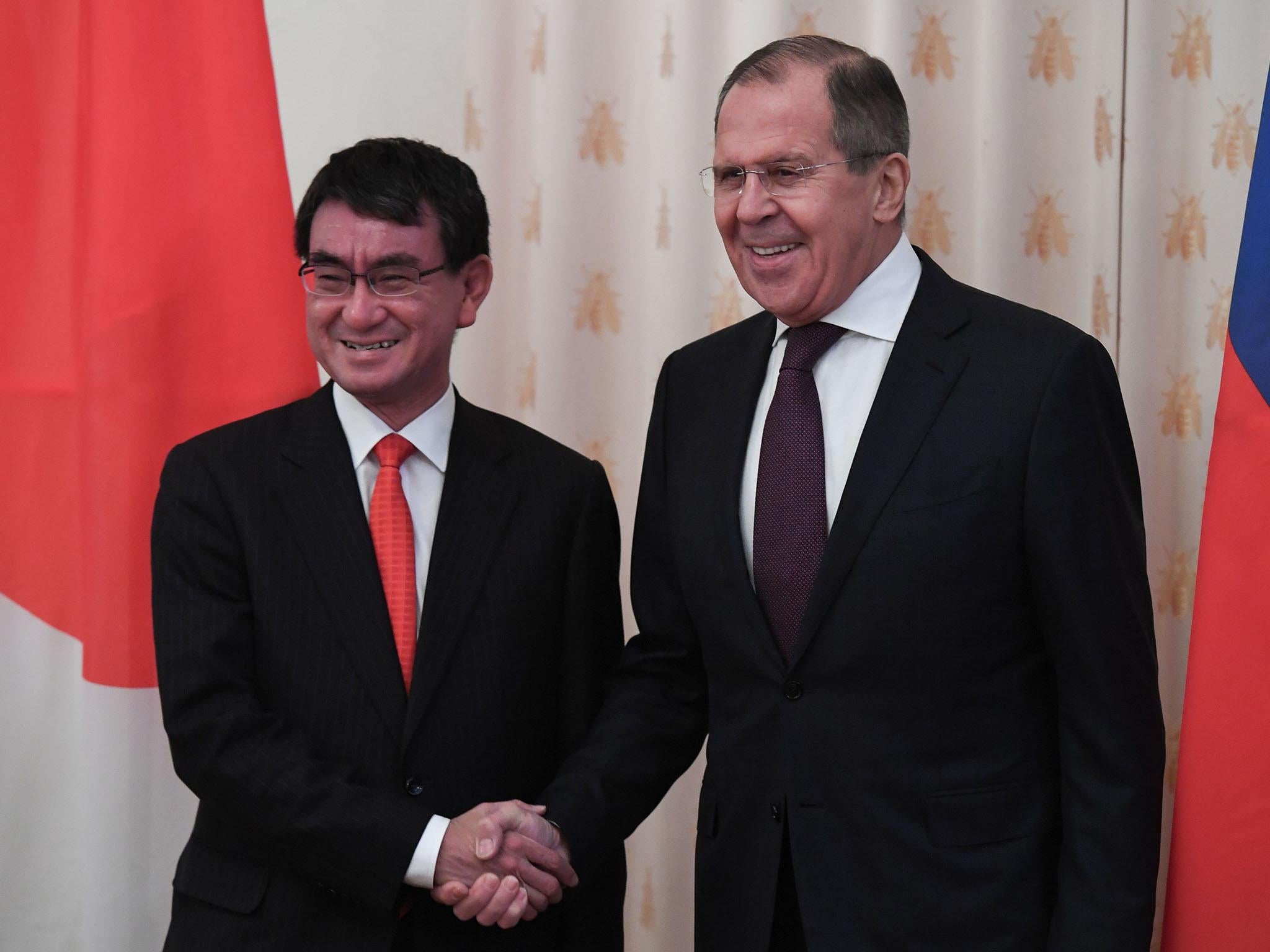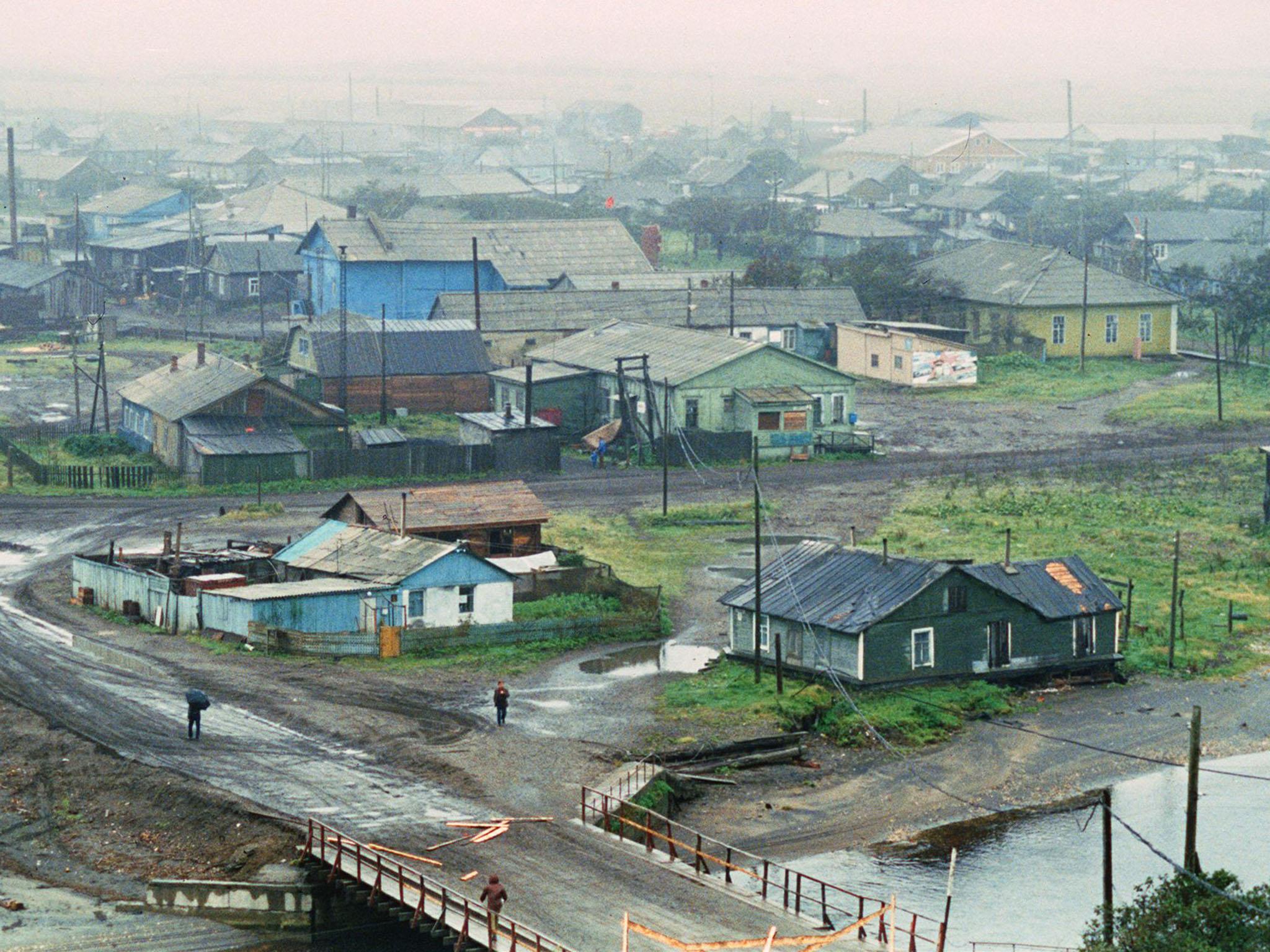Russia 'deeply concerned' over US missile defence systems in Japan and Korea
Sergei Lavrov met his Japanese counterpart in Moscow to discuss a separate territorial dispute – but he only wanted to talk about the US

Your support helps us to tell the story
From reproductive rights to climate change to Big Tech, The Independent is on the ground when the story is developing. Whether it's investigating the financials of Elon Musk's pro-Trump PAC or producing our latest documentary, 'The A Word', which shines a light on the American women fighting for reproductive rights, we know how important it is to parse out the facts from the messaging.
At such a critical moment in US history, we need reporters on the ground. Your donation allows us to keep sending journalists to speak to both sides of the story.
The Independent is trusted by Americans across the entire political spectrum. And unlike many other quality news outlets, we choose not to lock Americans out of our reporting and analysis with paywalls. We believe quality journalism should be available to everyone, paid for by those who can afford it.
Your support makes all the difference.Russia has criticised Japan for allowing a US military build-up in north Asia under the pretext of countering North Korean aggression.
Foreign minister Sergei Lavrov attacked Tokyo for allowing its territory to be used by the US military as a base for part of its missile defence system during a press conference with his Japanese counterpart in Moscow.
Japan's foreign minister Taro Kono was forced to defend his country's stance toward North Korea and its ties with the United States.
“We are expressing deep concern, with facts to back it up, that Japan, along with South Korea, is becoming a territory for the deployment of elements of the US global missile defence system which is being rolled out in that region under the pretext of the North Korea threat,” Mr Lavrov said.
“We have no problems directly with Japan, we do not see risks there. We see risks because of the proliferation of a global US missile defence system on the territory of countries that neighbour Russia, including Japan.”
He said that in the past few weeks the United States had conducted military exercises in the region and adopted additional sanctions despite the absence of provocation from Pyongyang.
“We are alarmed that in the last two months when North Korea conducted no tests or rocket launches, it seemed that Washington was not happy about that, and tried to do things that would irritate and provoke Pyongyang,” he added.
Referring to US officials, he said: “It’s as if they are hoping that they (the North Koreans) will lash out again, and then it would be possible to engage in military options.”
“As you know, the US leadership has said many times that all options are on the table, including military options, and we note that Japanese Prime Minister Shinzo Abe, at a meeting with President Trump in early November, said that he supports the American position 100 percent,” Mr Lavrov said
Mr Kono, after listening to Mr Lavrov’s remarks, responded that Japan and its allies were not seeking regime change in North Korea. He said Tokyo had to act to defend itself after Pyongyang test-fired missiles which flew over Japan’s territory.
“This is unprecedented, the most important and most pressing threat not just to Japan and Russia but to the international community as a whole. It’s absolutely unacceptable,” Mr Kono said, speaking through an interpreter.

“We believe it’s necessary to use all possible means and to increase the pressure on North Korea as much as possible to stop its nuclear program and the rocket launches,” he said.
“Japan welcomes the position of the United States, which is that to protect Japan and South Korea, all means of deterrence will be used.”
The remarks came after the two men met to discuss a 70-year-old territorial dispute over an island chain between the nations in the Sea of Okhotsk.
The islands are known in Japan as the Northern Territories and in Russia as the Kurile islands.
At the end of the Second World War, Soviet forces took control over the islands from Japan.
The subsequent dispute has meant that Moscow and Tokyo have still not signed a formal peace agreement to end wartime hostilities.
Both countries had agreed to speed up work on economic cooperation and ease travel restrictions to the area.
They offered no details about any progress on resolving the core of the dispute, about who has sovereignty over the islands.
Additional reporting by Reuters
Join our commenting forum
Join thought-provoking conversations, follow other Independent readers and see their replies
Comments